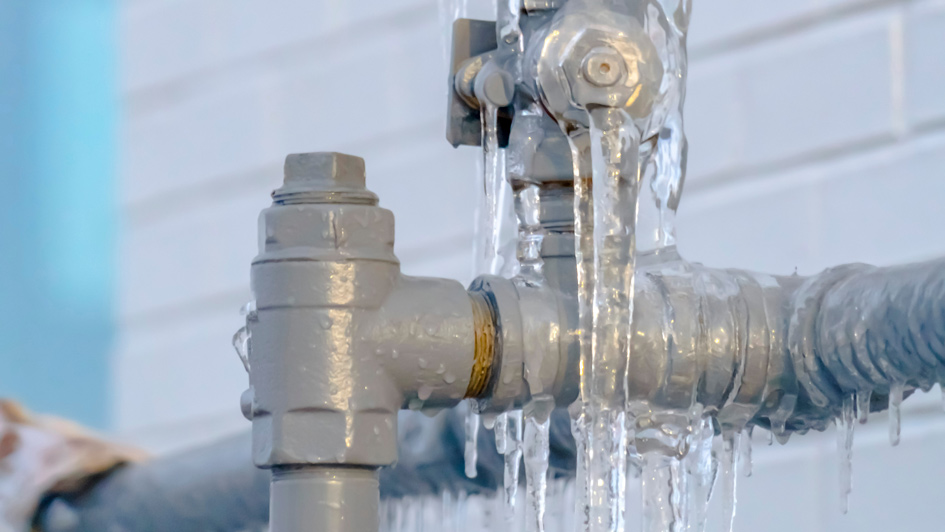
Snow-covered winter weather brings things like sledding down a nearby hill or snowball fights in the front yard. That being said, winter weather can be difficult on your home. Severely cold conditions can encourage the water lines in your home to freeze and burst, which could result in severe water damage and lasting negative effects.
Once your pipes are covered in ice, you may want to call a plumber in Reinholds to resolve the issue. Nevertheless, there’s a lot you can attempt to stop this from happening – and even a little prevention can go a long way.
What Pipes Are at a Higher Chance of Freezing
The pipes at the greatest risk of freezing are uninsulated water lines. Frequent locations for exposed pipes are within attic crawlspaces, near exterior walls, in the basement or even running beneath a modular home. Water lines that are not properly insulated are at the highest risk.
How to Stop Pipes from Freezing in Your Home
Properly insulating exposed water lines is a good first step to keeping your pipes free of ice. You’ll generally locate lots of these materials from the local plumbing company, and might also already have some somewhere in your home.
Try not to cover other flammable insulation materials where they may be caught on fire. If you don’t feel safe insulating the pipes by yourself, contact your local plumbing services professional in Reinholds to handle the job.
If you do decide to insulate the pipes by yourself, popular insulation materials for pipes are:
- Wraps or roll insulation: Many plumbers, hardware stores and big box retailers offer insulation – typically fiberglass, foam wraps or pipe sleeves – that you can wrap or fit around your pipes. They are offered in various lengths and sizes to fit the needs of your home.
- Newspaper: To a decent degree, newspaper can be used as an insulator. If the weather is getting colder and you aren’t able to add insulation before then, try wrapping uninsulated pipes in this.
- Towels or rags: If you aren’t able to buy insulation and don’t have any newspaper handy, wrapping especially vulnerable pipes with towels or clean rags as a final effort can be just enough to keep the cold air off the pipes.
One other preventative step you can attempt to keep pipes from freezing in your home is to seal any cracks that can permit cold air into your home. Keep an eye on the window frames, which can draw in surprisingly intense drafts. Not only will this help to stop your pipes from freezing, but it will have the added benefit of making your home more energy efficient.
Five More Ways to Keep Your Pipes from Freezing:
- Open the cabinet doors. Opening the cabinet doors beneath the sinks and other areas of your home with pipes will permit more warm air from the rest of the room to flow near the pipes.
- Letting water drip. Keeping a flow of water by letting your faucets move even just a bit can help prevent frozen pipes.
- Open interior doors. By opening doors between rooms or hallways, your home can be heated more consistently. This is especially important if there's a room that tends to be colder or hotter than the remainder of your home.
- Close the garage door. The exception to the open doors advice is the garage door, which you should keep closed – especially if your water lines can be found near or under the garage.
- Keep the heat flowing. Experts recommend setting the thermostat at a stable temperature and leaving it in place, rather than allowing it to get lower at night. Set it no cooler than 55 degrees.
How to Prevent Pipes from Freezing in an Empty Home
When you’re inside a house, it’s not difficult to recognize when something breaks down. But what additional steps can you try to keep pipes from freezing in an empty home or vacation home when the damage from a frozen pipe may not be discovered for a while?
As with a primary residence, adding insulation to any exposed water lines, opening interior doors throughout the home and winterizing the vacant home are the first steps to take.
Alternative Steps to Keep Pipes from Freezing in a Vacant Home:
- Leave the heat on. Even though you won't always be home, it’s best to leave the heat on – even if you adjust the thermostat down lower than you would if you were there. As with a primary residence, experts recommend keeping the temperature at no lower than 55 degrees.
- Shut water off and drain the lines. If you’re going to be gone for several weeks or are winterizing a seasonal cabin or cottage, shutting the water off to the house and draining the water out of the water lines is a good way to prevent pipes from freezing and bursting. Don’t forget to drain the water out of any appliances, including the hot water heater, or the toilets. Confirm you empty all the water from the pipes. If you are not sure of how to drain the water from the pipes, or don’t feel secure doing it on your own, a plumber in Reinholds will be delighted to help.
